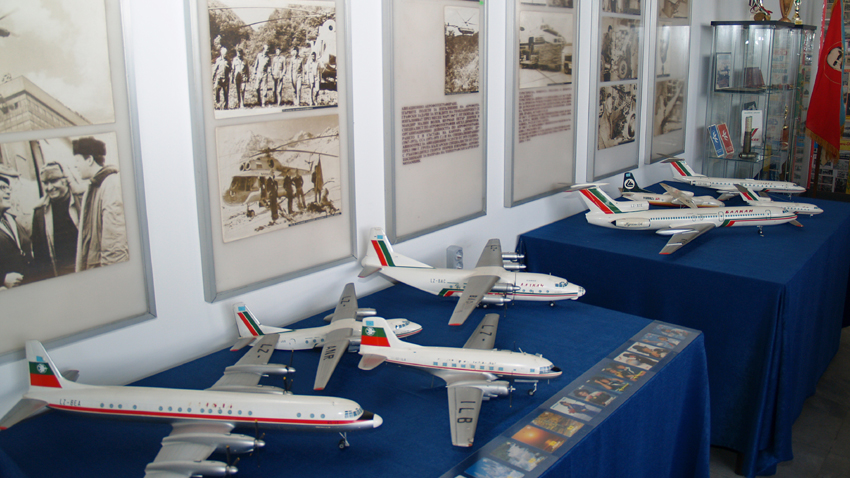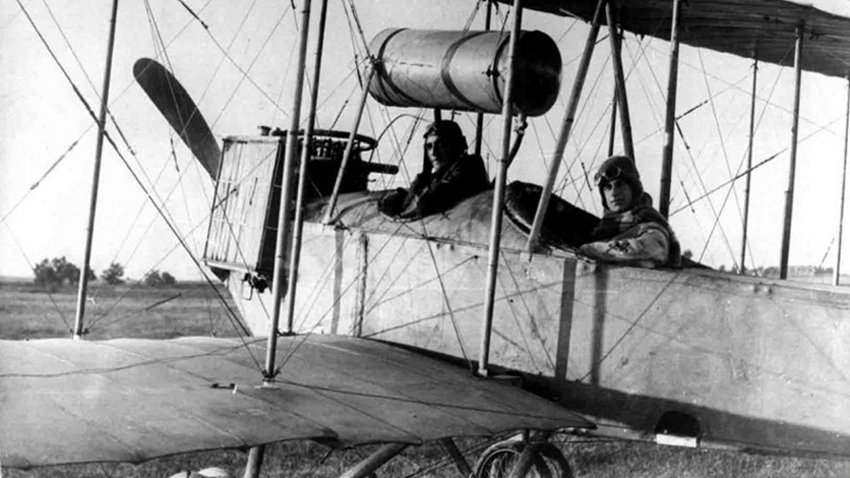The 100th anniversary since the beginning of Bulgarian aircraft construction became the reason for organizing a Day of Aviation Occupations in the Aviation Club at the Sofia Airport. Various aviation occupations were presented by the Bulgarian Airlines Association, the Sofia Airport, the College of Air Transport at the Institute of Air Transport, and the Civil Aviation Administration. Renowned pilots, aviation engineers, technicians, flight attendants and veterans also took part. More than 150 students form several schools in Sofia also took part.
For some "the sky is the limit," but for others it is not. The sky is the life of longtime pilot Ivan. He says that his profession is a hard one and that the fear of flying never leaves the human heart. Most people think that for pilots it's just a routine, but it is not. He compared flying with birth. Every time the plane rises above the clouds, one sees a new light, a new world. The pilot says this is quite inspiring. Some of his colleagues also told people about the reasons that made them choose this particular profession. This is a really dynamic job but there are negative sides to it too like less time for family and having responsibility for the lives of a great number of people. In the past training was paid entirely by the state, now some serious financing is required but interest remains high. Training lasts for years and many hours pass in modern simulators before actual flying. There is something like an unwritten rule that if your father is a pilot and you must become a pilot, too. Also pilots say that there are no identical flights and every time one learns something new and useful.

Bulgaria is a small country but it has also contributed to the world of aviation.
Assen Yordanov (1896-1967) is a world-known Bulgarian inventor, engineer and aviator. He is considered the founder of aviation engineering in Bulgaria and had a huge contribution to the development of American aviation. Making kites was what he loved doing most when he was a child. During the Balkan Wars Assen Yordanov was a volunteer and worked as a mechanic in the airplane division near Svilengrad. He continued working on the construction of the first Bulgarian airplane "Express," later called "Yordanov - 1", which was completed in the summer of 1915 and thus the beginning of Bulgarian aircraft construction was marked. In 1925, a state-owned airplane workshop was created at the airport of Bozhurishte.

The first officially certified Bulgarian pilot is Simeon Petrov, who is also the first to fly over Bulgaria. He put the beginning of night flying in France and is also the first aviator in history who landed a plane with the engine stopped. His experience and his peculiar aviation records are used in the development of flight programs of leading international aviation schools. A book entitled "Simeon Petrov - First among Eagles" is dedicated to his life.
In 1892 at the International Exhibition in Plovdiv, two lieutenants of the Bulgarian Army made a flight with the French airship 'La France'. Inspired by the flight they managed to persuade the military that Bulgaria needed a flying military unit and this was the beginning of the Bulgarian Air Force was marked. On April 20, 1906 an Aircraft Division was established. The first generation of Bulgarian pilots were trained on an airship called "Sofia 1."
The Bulgarian Air Force that took part in the Balkan Wars and the First and Second World Wars continue to this day to maintain the spirit and traditions of Bulgarian aviation. Pilot Dimitar Spisarevski remains in history with his bravery that earned him the nickname "living torpedo." On December 20, 1943 in the midst of World War II, Sofia suffered an Allied bombing raid during which 270 bombs were released. During the fierce battle Spisarevski ran out of ammunition and crashed his fighter jet in into an enemy bomber that disintegrated in mid air.
English: Alexander Markov